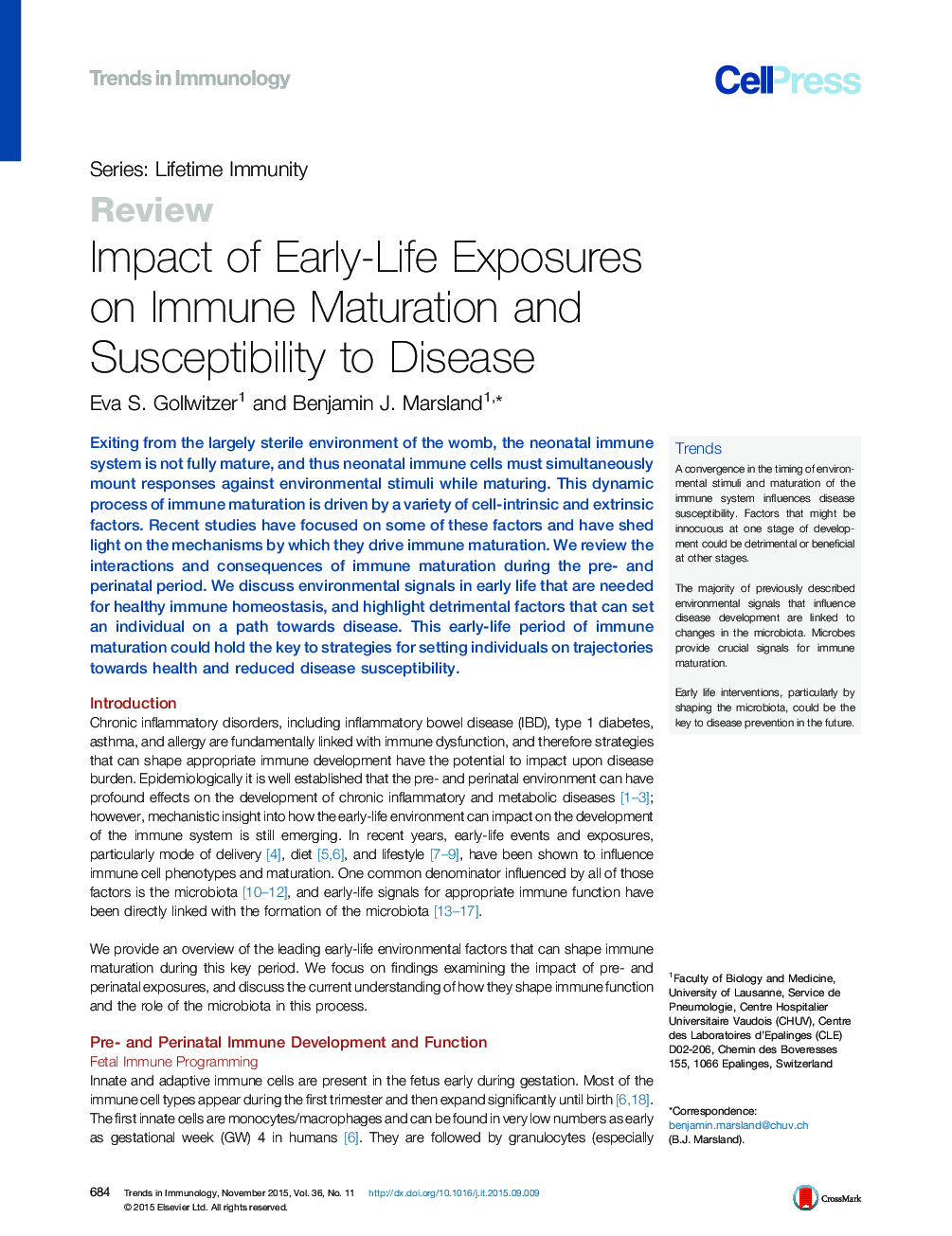| کد مقاله | کد نشریه | سال انتشار | مقاله انگلیسی | نسخه تمام متن |
|---|---|---|---|---|
| 4359782 | 1301105 | 2015 | 13 صفحه PDF | دانلود رایگان |
Exiting from the largely sterile environment of the womb, the neonatal immune system is not fully mature, and thus neonatal immune cells must simultaneously mount responses against environmental stimuli while maturing. This dynamic process of immune maturation is driven by a variety of cell-intrinsic and extrinsic factors. Recent studies have focused on some of these factors and have shed light on the mechanisms by which they drive immune maturation. We review the interactions and consequences of immune maturation during the pre- and perinatal period. We discuss environmental signals in early life that are needed for healthy immune homeostasis, and highlight detrimental factors that can set an individual on a path towards disease. This early-life period of immune maturation could hold the key to strategies for setting individuals on trajectories towards health and reduced disease susceptibility.
TrendsA convergence in the timing of environmental stimuli and maturation of the immune system influences disease susceptibility. Factors that might be innocuous at one stage of development could be detrimental or beneficial at other stages.The majority of previously described environmental signals that influence disease development are linked to changes in the microbiota. Microbes provide crucial signals for immune maturation.Early life interventions, particularly by shaping the microbiota, could be the key to disease prevention in the future.
Journal: - Volume 36, Issue 11, November 2015, Pages 684–696
